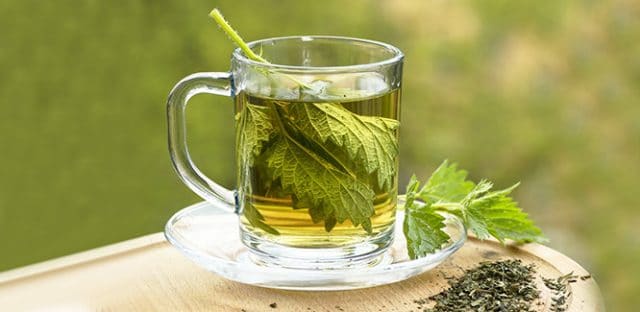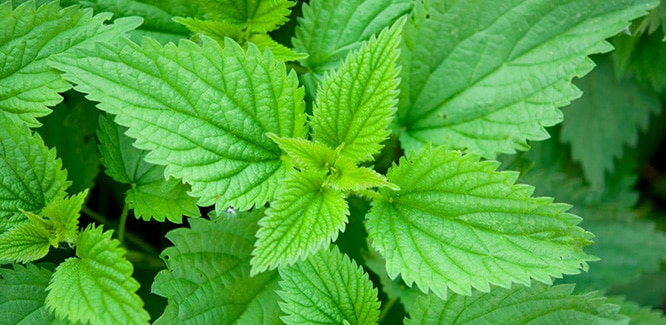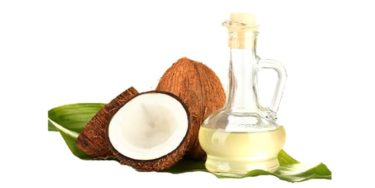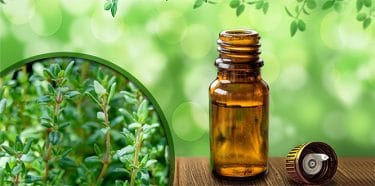
Table of Contents
What is stinging nettle?
Stinging nettle is a plant that causes itching and redness when it comes into contact with your skin. But it is extremely curative. It can be used in many different ways. In culinary of some cultures it is even used for soup, pie and cheese. However, it is most commonly consumed as tea. Stinging nettle contains histamine, minerals (calcium, potassium, iron, boron etc.) formic acid, organic acids and vitamins C, vitamin A, B2, K and D, and its protective properties against many diseases have been scientifically evidenced.
Generally its leaves and roots are used but seeds also became common in recent years. Stinging nettle is used for cardiovascular diseases as well as kidney stones and bone health. In case of nettle sting, affected area should not be touched or scratched as this can push the chemicals further into the skin and extend the irritation time.
Best remedy is to clean with soap and water. And duct tape can help removing the hairs from the skin. Other traditional anti-itch treatments like aloe vera, calamine lotion and cold compression can also help.
Benefits of stinging nettle
It cleans the body
Stinging nettle can clean the toxins in the body. Diuretic properties of stinging nettle can help rapid disposal of toxins that are inactivated in the body. This increases the nutritional intake of the intestines, enables a smooth digestion and prevents the accumulation of hazardous toxins.
In addition, stinging nettle stimulates the lymphatic system and helps removing the toxins from the kidneys.
Prevents kidney stones
Active ingredients of the stinging nettle help easy removal of kidney, gallbladder and bladder stones and prevent their formation. Stinging nettle is also a diuretic and protects the bladder against infection and oedema.
Increases the blood circulation and helps cleaning the blood
High vitamin C and iron compound content of the stinging nettle stimulates red blood cell production. Therefore, this increases blood circulation, accelerates wound healing and elevates energy level. Stinging nettle can be recommended to alleviate chronic fatigue and anemia for these properties.
Protects heart health
Regular consumption of nettle tea helps reducing blood pressure and alleviating blood circulation stress and tension.
Eliminates respiratory problems
Stinging nettle is effective for the treatment of various respiratory problems including hay fever, asthma and other seasonal allergies.
It is good for allergic diseases
The studies showed that certain extracts of this herb can significantly decrease allergic reactions. The effects of the asthma are observed to decrease with regular nettle tea consumption by asthma patients.
Alleviates osteoarthritis, arthritis and joint pain
Topical application of nettle to the affected body parts like hands, knees, hips and spine of osteoarthritis and arthritis patients helps alleviating the pain. In addition, oral use can also help with the pain.
Nettle baths are recommended for joint pains. It is also known to reduce rheumatic pains. Boil the stinging nettle for five minutes, cool it down and apply the herb with massage to the painful area.
Helps gout disease
The studies showed that stinging nettle can alleviate chronic muscle pains and treat gout disease with its anti-inflammatory properties. The most common uses of stinging nettle are either as tea or herbal supplement.
Helps against osteoporosis and bone health
Boron is a valuable mineral inside stinging nettle and it is important for the preservation of calcium content within our bones. And this way nettle helps slowing osteoporosis.
Protects prostate health
Stinging nettle is observed to be effective against prostate cancer and for the treatment of problems related to urination, emptying the bladder, pain during urination, dripping after urination and low urinary flow rate.
Effective for the protection of the skin health
Applying stinging nettle extracts to the skin is proved to decrease the severity of acne and even prevent bacterial infections. Stinging nettle can accelerate healing, decrease the wound scars and spots, and can increase the anti-aging effects to reduce wrinkles and aging marks with its anti-oxidant properties. It is generally used as tonic or mask for these purposes.
Alleviates the problems related to smallpox and eczema. It is effective in the treatment of burns. Nettle can be applied to the burn site by mixing with olive oil.
It also helps maintaining the hair quality
Prevents hair loss and can be used for baldness treatment. Boil the leaves of stinging nettle and then apply its water for rinsing your hair. This process prevents dandruffs as it protects the scalp health. Drinking nettle tea concurrently increases its effectiveness. Nettle helps having abundant hair by allowing the growth of new hair.
Following is one of the healthiest methods to prevent hair loss: Brew nettle leaves in a boiled water and let to cool.2-3 cups of this tea is consumed daily.
What is stinging nettle good for?
- Nettle increases breast milk production in breast-feeding women
- Prevents development of many cancer types
- Reduces nausea and vomiting
- Alleviate ulcer and hemorrhoids
- Reduces gingivitis related bleeding
- Treats bug bites.
Stinging nettle is a very safe plant when used appropriately, however, there are several precautions needed for harvesting nettle. Hard gardening gloves must be used to avoid stinging while harvesting. The most suitable harvest season is spring and young parts should be harvested. Nettle becomes bitterer when it blossoms and loses its freshness. Consult your doctor before using stinging nettle.
How to use stinging nettle?
How to make and drink nettle tea?
Dried leaves and flowers of nettle are used to make tea. Add these to the water boiled for four to five minutes and leave to brew for 5 minutes and drink when it is warm. Herbs like raspberry leaves, Echinacea or goldenseal can also be added to the tea.
Many different combinations can be found at herbalists. You can also prepare nettle root tea and nettle seed tea. Root tea is consumed cold. After boiling the water and brew the roots for 4-5 minutes and drink cold. And for seed tea, crush the seeds thoroughly, boil the crushed seeds for 8-10 minutes, leave to brew for 10 minutes and drink warm.
How to cook stinging nettle?
The leaves can be steamed and cooked like spinach and similar vegetables. It can be added to soups, salads and pies after being cooked. Nettle can also be pureed and used for salad, pasta etc. When cooked, the nettle has a flavor similar to spinach mixed with cucumber. Cooked nettle is a great source of vitamins A, C, protein and iron.
Topical use of nettle
Nettle extracts and root tinctures can be applied directly to joints and painful areas of the body. It is also available in cream form.
Stinging nettle capsules and tablets
Stinging nettle capsules and tablets can be taken orally. There is no conclusive evidence on whether stinging nettle capsules or tablets for allergy relief are better ingested on an empty stomach. If there is concern about upset stomach and other side effects, take it with food.
What are the benefits of nettle seeds?
Although the recent statements of the scientists with regards to the benefits of stinging nettle on cancer made the seeds popular, they have many other health benefits.
- Nettle helps with gynecological diseases
- It has anti-microbial properties
- Especially good for lung diseases and allergies
- Prevents oedema
- Helps reducing the blood sugar level
- And it has benefits on the digestive system. Nettle cleans the intestines, reduces bloating and gas complaints
- Eliminates fatigue
- Increases sexual drive
- Decreases the risk for many cancer types, especially the prostate cancer
Does stinging nettle help weight loss?
Although stinging nettle is not enough for weight loss on its own, it may help you with your weight loss efforts thanks to its ability of effectively removing metabolic waste out of the body. Reduction of metabolic wastes stored in the muscle tissue and lymphatic systems allows our body to function more effectively.
As nettle is a diuretic, plenty of water should be taken to prevent dehydration. Some experts recommend 3 to 4 glasses of nettle tea as it is a natural appetite suppressant and accelerates metabolism.
Should children be given stinging nettle?
Stinging nettle is widely used especially for the treatment of asthma in children. However, dose must be adjusted under a doctor’s supervision as there is still no established safe and effective dose. Nettle can be added to the meals of the children from time to time by mixing with soup.
Side effects of stinging nettle
- Pregnant women must not use stinging nettle before consulting their doctors because nettle can increase miscarriage risk as it affects menstrual cycle and stimulate uterus contractions.
- Breast-feeding women are also recommended to consult a doctor before use
- Diabetes patients should also seek medical advice as nettle can affect blood sugar and intervene with diabetes management
- Hypertension patients should exercise caution when using nettle since it increases the blood pressure
- Nettle is a strong diuretic, therefore, patients on medication for urinary tract should consult their doctor
- At the same time nettle is a blood thinner, thus, people who are receiving drugs for similar purposes should be careful
- There are commercially available nettle capsules for hair and skin health. However, consulting a doctor is recommended before taking nettle capsules.
Important Warning: Before adding such a powerful and extensive herbal medicine to your diet, consult your doctor and be sure that nettle will not interfere with your any ongoing treatment. In addition, you also need to adjust any other supplements in order to avoid the unwanted side effects of the herb. An herbal supplement plan should be prepared by consulting an expert.
References: 1- Based Benefits of Stinging Nettle, 2- Stinging Nettle, 3- Benefits and uses of stinging nettle




